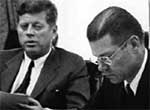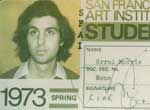Impertinent 'Heaven' probes pet cemeteries
By Alan BergerBoston Herald American - March 20, 1981
The appearance of an original talent in the arts frequently conforms to a pattern. Simply put, the newcomer presents us with a work, which defies nearly every criterion in the established canon of taste. The new work - like a new theory of light or matter - abruptly makes its predecessors appear inelegant, clumsy, misguided.
This is precisely what Errol Morris does with his first film, the impertinent documentary "Gates of Heaven." Because it is a documentary (and a rather static one at that), and because it presents a vision of irremediable American inanity, this probe of the pet cemetery business in northern California will certainly not please everyone. Least of all will it please those filmmakers and audiences who have sworn a sort of ideological allegiance to the methods and values of cinema-verite, with its transparent and esthetically naive pretense of achieving an unadulterated voyeurism. Where the cinema-verite documentary hoped to film human subjects without affecting their behavior, Morris openly acknowledges the role of the filmmaker. From beginning to end of this desolating yet mordantly funny film we are aware of a presiding directorial presence. Morris frames his pictures and edits his footage with evident formality. The goal is not to distract the viewer with stylistic exhibitionism, but to help us see and hear what is up there in front of us on the screen - the pain the idiocy, the emptiness of people who are just plain folks.
We are presented with a succession of carefully posed portraits of individuals who are proprietors, patrons or neighbors of two pet cemeteries in northern California. The camera is set back, immobile, at a tactful distance. The frame is filled with iconographic objects, a dog's picture, Oscar-like trophies, a row of marijuana plants - which designate the kinds of symbolic attributes painters and sculptors once suggested with a lily, a snake or an empty goblet. These portraits are like some form of contemporary American Gothic. And when the posed subjects come alive, speaking to us, the surprise is not that they defy a stereotype, but that they satisfy so completely the expectations created by the pictures they inhabit. Their monologues push normal speech to absurd extremes. An old crippled woman sitting in her doorway, with her swollen, mottled hands folded in her lap, leaps from one private obsession to the next. She is certain some demonic intruder has been doing away with all the cats in the neighborhood. She tells us that she bought a car for her grandson, whom she raised like a son since he was two years old. Since she can't get around too well anymore, the boy ought to "help" her with his car, but he only shows up when he needs money. "Now that he's got that office job," she blurts out suddenly, dwelling on the money he owes her, "I'm goin' after him good." And then, in the next breath, she's lamenting the grandson's broken marriage. "She's nothing but a tramp. I told him that in the first place." It is a soliloquy that pulls us so swiftly and so directly in subjective misery that the experience can induce a kind of vertigo. Other talking portraits make us dizzy listening to a debased American language, an instrument of infinite deception which allows a former insurance salesman now in the pet cemetery racket to keep repeating - as if he'd come on Ali Baba's own secret formula - "What does it mean to me?"
Errol Morris offers up these vivisected slices of American life without sentimentality, without ideology, without consolations. On the evidence of his film, Morris resembles a cinematic reincarnation of Flaubert, a precise stylist dedicated to demolishing all the received ideas of his contemporaries and to creating a pitiless vision of their inanity.







